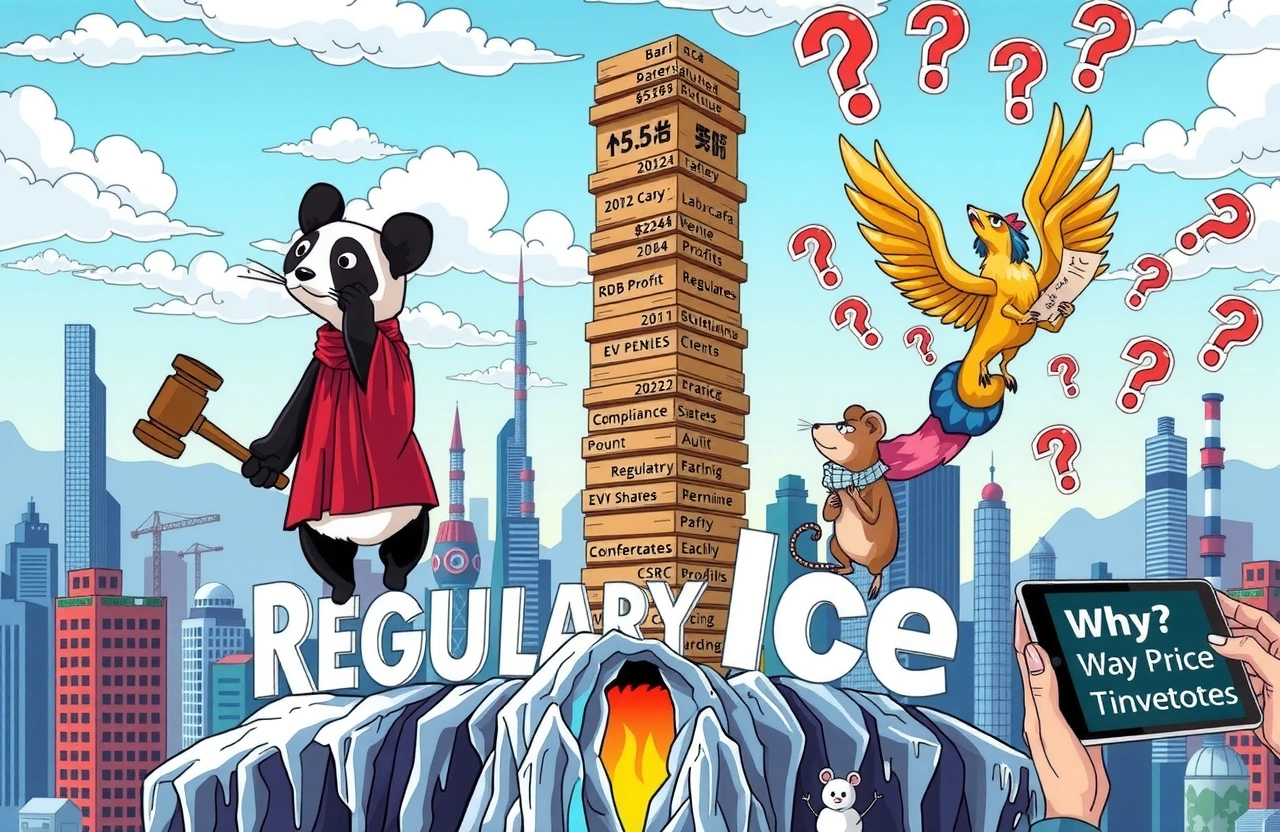The Sudden Detention of Baichuan’s Leadership
On July 1, 2025, shareholders of Shenzhen-listed Baichuan High-Tech Advanced Materials Co., Ltd. (002455.SZ) received alarming news: chairman Zheng Tiejian (郑铁江), who holds 14.19% of the company’s shares and serves as its controlling shareholder, had been detained by Jiangyin Municipal Supervisory Commission. This Chairman Detention Incident occurred amidst China’s intensified anti-corruption campaigns where 17% of listed companies faced governance probes last year according to China Securities Regulatory Commission (CSRC) statistics. Baichuan’s stock registered a slight 0.13% gain on the news day despite apparent regulatory turmoil—a paradox highlighting market uncertainty about corporate China’s recovery path.
Official Notification Details
The company disclosed through regulatory filings that Zheng’s family notified them of his detention. Jiangyin authorities haven’t publicly detailed investigation specifics yet, but Supervisory Commissions typically pursue corruption, power abuse, or violations of Party discipline. Historical precedents include:
- 2023 detention of Kangmei Pharmaceutical Chairman Ma Xingtian (马兴田)
- 2024 investigation into China Huarong Asset Management Chairman Lai Xiaomin (赖小民)
Operational Continuity Measures
Baichuan’s board affirmed operations remained unaffected by the Chairman Detention Incident. Its management team maintains production while controlling shares lie frozen under Jiangyin’s custody – critical protection against stock volatility given Zheng’s 14.9% ownership stake.
Baichuan’s Financial Position Before Crisis
The Chairman Detention Incident contrasts sharply with Baichuan’s recently booming performance. The Jiangsu-based manufacturer issued exceptional 2024 results weeks earlier:
| Financial Metric | 2024 Result | YoY Change |
|---|---|---|
| Revenue | ¥55.56 billion | +35.10% |
| Net Profit | ¥1.09 billion | Loss to Profit (+123.31%) |
Analysts attribute success to lithium battery materials demand following China’s EV subsidies expansion. Still, Zheng’s abrupt departure raises financing risks: Credit Suisse projects potential downgrade if investigations persist beyond Q3.
Corporate Growth Trajectory
Founded in 2002, Baichuan leveraged China’s clean energy transition through strategic diversification:
- Fine chemicals division filed 25 patents
- New materials business contributed ¥19.3 billion revenue
- Tesla-supplied battery materials surged 42% in shipments
Regulatory Storm Context
The Chairman Detention Incident occurs amid heightened A-share governance purges targeting financially-performing firms. CSRC chair Wu Qing (吴清) recently stressed combating ‘resource-sector corruption’, notably where:
- Surging commodity profits conceal fund diversion
- State subsidies flow to companies with political ties
- Sanctioned entities avoid official blacklists
Shenzhen Stock Exchange records show sanctions against executives jumped 31% last year—60% occurring post-positive-earnings announcements.
Investor Protection Mechanisms
To mitigate panic during such crises:
- Exchange freezing major shareholder shares
- CSRC coordinating temporary liquidity provisions
- Independent directors overseeing audit committees
Baichuan applied all three protections within 48 hours of Zheng’s Chairman Detention Incident disclosure.
Market Impact Analysis
Why did Baichuan shares rise amid this Chairman Detention Incident? JPMorgan analysts cite:
- Reduced M&A premiums for Zheng’s frozen stake
- Speculation about state-backed restructuring
- New management potentially implementing shareholder-friendly policies
Yet historical parallels suggest turbulence: After Sunshine Energy chairman Li Hejun (李河君)’s 2015 detainment, shares lost 46% within three months despite profitable operations.
Sector-Wide Implications
Materials/composite sector PE ratios dropped 0.2% overnight as traders recalibrated governance risks:
- Supplier due diligence teams accelerated
- Funds reallocated ¥7.3 billion to state-owned enterprises
- ESG analysts flagged three competitors with similar ownership structures
Governance Lessons and Practical Safeguards
The Baichuan Chairman Detention Incident exposes vulnerability points:
- Concentration of power among founder-CEOs
- Board screening gaps regarding political exposure
- Transparency failures in provincial investigations
Shenzhen corporate lawyer Liu Yan (刘岩) recommends:
- Appointing independent custodians for controlling stakes
- Legal audits before quarterly declarations
- Diverse revenue strategies minimizing regional dependence
Investor Best Practices
Mitigate portfolio impact:
- Verify executives’ provincial bank affiliations
- Monitor supply chain political contributions
- Subscribe to Corporate Governance Risk Index alerts
Forward Path Amid Governance Crisis
Baichuan’s Chairman Detention Incident resolution now enters critical phases:
- Within 30 days: Prosecutors decide on formal indictment
- Within 90 days: Jiangyin Commission concludes investigation
- Asset disposal procedures if convictions occur
Successful navigation requires deep compliance restructuring: Morgan Stanley cites PetroChina’s 2017 corruption-rebound model involving international compliance officers and forensic audits. For investors, prioritize firms exporting overseas—leverage foreign regulations as governance backstops. Immediately review portfolios for concentrated leadership risks: Every heavy-weight position demands renewed governance due diligence tonight.



